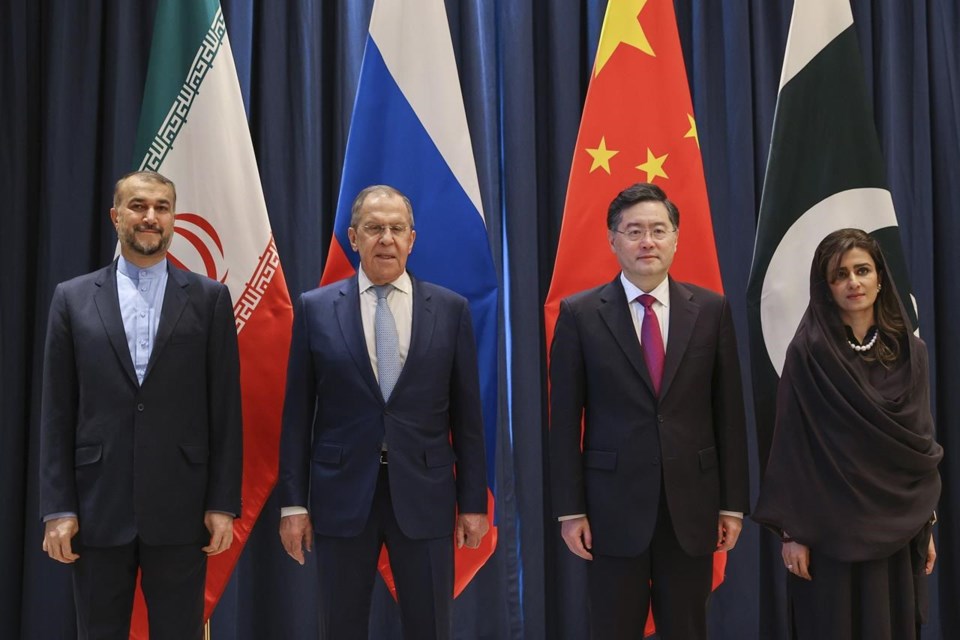A summit on Thursday that was aimed at safeguarding regional security in view of the situation in Afghanistan was attended by the top diplomats from Russia, China, Iran, and Pakistan.
According to the Russian Foreign Ministry, the four nations’ foreign ministers met in Samarkand, Uzbekista.
And spoke on the necessity of working with Afghan authorities to preserve political stability and avert a humanitarian crisis.
The ministers also discussed how best to coordinate initiatives to “counter the threats of terrorism and drug trafficking from the Afghan territory.”
Since the Taliban seized control of Afghanistan in August 2021, only a select few nations have maintained diplomatic representation in Kabul, the country’s capital.
Even though it listed the Taliban as a terror organisation in 2003 and never removed the outfit from the list, Moscow tried for years to forge relations with the organisation.
It hosted multiple rounds of discussions about Afghanistan with senior Taliban representatives and neighbours.
As part of China’s ambitions to increase its influence internationally. Beijing has adopted a more prominent position on regional matters pertaining to Afghanistan.
On the sidelines of their meeting on Thursday, Chinese Foreign Minister Qin Gang. And Russian Foreign Minister Sergey Lavrov had separate discussions about a variety of topics, including the situation in Ukraine.
The Chinese Foreign Ministry stated in a statement released prior to the Uzbekistan conference that Beijing was prepared to collaborate more closely with Afghanistan’s neighbours.
The international community in order to promote stability, security, prosperity, and development in both the country and the region as a whole.
The declaration restated China’s commitment to uphold Afghanistan’s independence, sovereignty, and territorial integrity as well as the decisions made by its citizens.
In addition to urging the United States to honour its commitment to the nation, it encouraged the international community to strongly help Afghanistan in its fight against terrorism.
Beijing also voiced its wish that the Afghan interim administration would keep up its efforts.
To serve the needs of the Afghan people and the demands of the international community for a pluralistic political system.
According to the statement, “We trust that the Afghan interim administration would safeguard the fundamental rights and interests of all Afghan citizens, especially women, children, and members of all ethnic groups.
Currently, girls are not permitted to continue their education past the sixth grade, and women are not permitted at Afghan universities.
Authorities describe the limits on education as a temporary suspension rather than a prohibition, but colleges and universities resumed in March without the female students they had previously had.
In addition, most jobs and public places, like parks, are off-limits to women.
Strong international opposition to the policies has further isolated the nation at a time when its economy has crumbled and a humanitarian catastrophe has gotten worse.
No nation has acknowledged the Taliban as Afghanistan’s legitimate government.
















